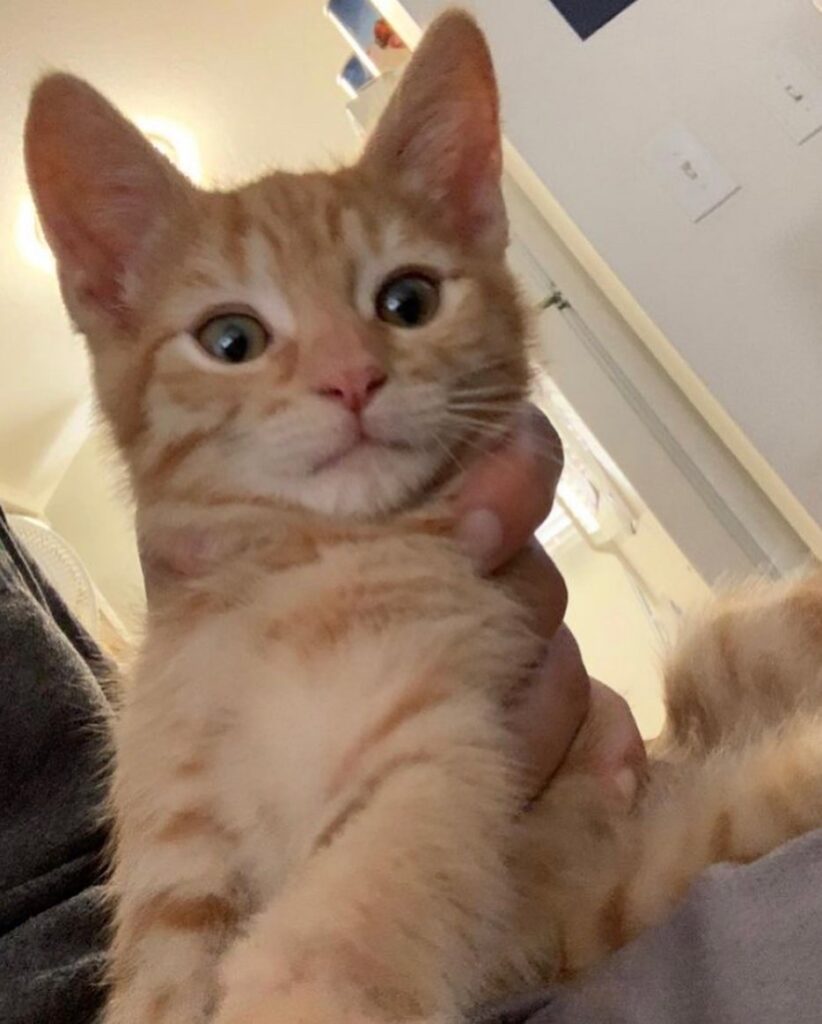
As an orange kitty owner and as someone who found black spots in my kitties’ gums, I understand how concerning it can be to find them and not know why that might be.
While it’s important to bring your cat to the vet for a proper diagnosis, there are a few possible causes of black spots on a cat’s gums:
1. Lentigo
Lentigo is a genetic condition characterized by an increase in the number of pigment-producing cells in a cat’s skin. This can lead to hyperpigmentation and the appearance of black spots on the gums.
Lentigo is more common in orange cats as well as older cats and is usually harmless.
2. Melanoma
Although rare, black spots on a cat’s gums can be a sign of melanoma, a type of cancer that affects pigment-producing cells.
Melanomas can start out appearing just like lentigo, but may be slightly raised and have a red tint around the edge. If your vet suspects that the black spots on your cat’s gums may be a melanoma, a biopsy may be necessary.
3. Oral Trauma
Oral trauma, such as a cat biting down on something hard or experiencing a blow to the mouth, can also cause black discoloration on the gums.
If your cat has recently experienced an injury to their mouth, then black gums may be a result of the trauma. It’s important to take them to the vet for an evaluation to ensure that there are no underlying issues.
Expanding on the Causes

The most common cause of black spots on a cat’s gums is due to melanin pigmentation. Melanin is a natural pigment that gives color to the skin, hair, and mucous membranes. Sometimes, these pigment-producing cells multiply, leading to hyperpigmentation, which explains the black spots.
This is known as lentigo and I had never seen it before adopting my orange tabbies, so imagine my scare when I found multiple of them!
Another reason why black spots may appear on your cat’s gums is dental issues.
Dental problems, such as periodontal disease or tooth decay, can lead to black spots on a cat’s gums. Plaque and tartar buildup can cause inflammation and discoloration, which may appear as black spots. Regular dental care, including brushing your cat’s teeth and routine veterinary check-ups, can help prevent these issues.
In some cases, black spots on a cat’s gums may be a sign of a more severe health condition.
For example, black gums in cats can be a sign of a heart condition called Hypertrophic Cardiomyopathy.
If left untreated, gum inflammation can lead to sore gums and ulceration. Therefore, it’s essential to consult your veterinarian if you notice any changes in your cat’s gums.
When to Consult a Veterinarian
If you notice any changes in your cat’s behavior or overall health, it is always best to consult a veterinarian.
In particular, if you notice an increase in the number of black spots on your cat’s gums, or if the spots appear raised or ulcerated, it may be a sign of a more serious health issue. Your veterinarian can perform a thorough examination and recommend appropriate treatment.
How can I treat black spots on my cat’s gums?
Treatment for black spots on your cat’s gums depends on the underlying cause. If the black spots are caused by lentigo, no treatment is necessary.
However, if the black spots are caused by gum disease or oral cancer, treatment may involve medication, surgery, or other interventions. You should consult with your veterinarian to determine the best course of treatment for your cat.
Can black spots on a cat’s gums signify a fungal infection?
No, black spots on a cat’s gums are not a sign of a fungal infection. Fungal infections typically cause other symptoms such as redness, swelling, and discharge.
If your cat has black spots on their gums, it is important to have them examined by a veterinarian to determine the underlying cause.
Now that you’ve resolved the mystery of these spots, you may also find our orange cats vs black cats super interesting.